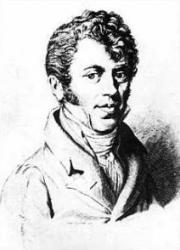Planning worship?
Check out our sister site, ZeteoSearch.org,
for 20+ additional resources related to your search.
- |
User Links
Person Results
Samuel Wesley

1766 - 1837 Person Name: S. Wesley, 1766-1837 Composer of "BERKSHIRE" in The Methodist Hymn-Book with Tunes Samuel Wesley; b. Feb. 24, 1766, Bristol; d. Oct. 11, 1837, London; composer and organist. Son of Charles Wesley, grandson of Samuel Wesley, 1662-1735
Samuel Wesley
George M. Garrett

1834 - 1897 Composer of "ESCHOL" in Christian Science Hymnal (Rev. and enl.) Born: June 8, 1834, Winchester, Hampshire, England.
Died: April 9, 1897, Cambridge, England.
Buried: Cambridge Mill Road Cemetery, Cambridge, England
George M. Garrett
Sigismund Neukomm

1778 - 1858 Person Name: S. Neukomn Composer of "AMES" in Christ in Song Sigismund Ritter von Neukomm, b. Salzburg, 1778; d. Paris 1858
Evangelical Lutheran Hymnal, 1908
Sigismund Neukomm
Jonathan Battishill
1738 - 1801 Person Name: Jonathan Battishill (1738-1801) Composer of "ST. PANCRAS" in The Oxford Hymn Book Jonathan Battishill born in London, 1738; composer of operas, sacred music and glees. He died at Islington, December 9, 1801.
A Dictionary of Musical Information by John Weeks Moore, O. Ditson, Boston, c. 1876
Jonathan Battishill
Accepted Widdop
1750 - 1801 Person Name: A. Widdop, c. 1790 Composer of "BIRSTAL" in Methodist Hymn and Tune Book
Accepted Widdop
Conrad Kocher

1786 - 1872 Arranger of "ELNO" in Carmina Sacra Trained as a teacher, Conrad Kocher (b. Ditzingen, Wurttemberg, Germany, 1786; d. Stuttgart, Germany, 1872) moved to St. Petersburg, Russia, to work as a tutor at the age of seventeen. But his love for the music of Haydn and Mozart impelled him to a career in music. He moved back to Germany in 1811, settled in Stuttgart, and remained there for most of his life. The prestigious Cotta music firm published some of his early compositions and sent him to study music in Italy, where he came under the influence of Palestrina's music. In 1821 Kocher founded the School for Sacred Song in Stuttgart, which popularized four-part singing in the churches of that region. He was organist and choir director at the Stiftskirche in Stuttgart from 1827 to 1865. Kocher wrote a treatise on church music, Die Tonkunst in der Kirche (1823), collected a large number of chorales in Zions Harfe (1855), and composed an oratorio, two operas, and some sonatas. William H. Monk created the current form of DIX by revising and shortening Conrad Kocher's chorale melody for “Treuer Heiland, wir sind hier,” found in Kocher's Stimmen aus dem Reiche Gottes (1838).
Bert Polman
Conrad Kocher


 My Starred Hymns
My Starred Hymns


